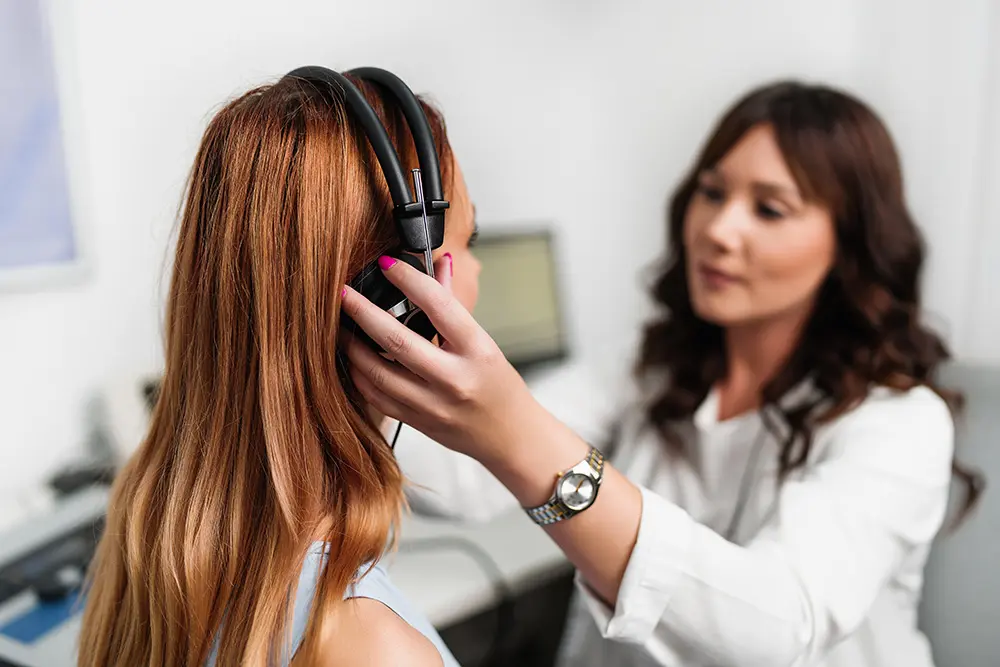Normally, if you have a bite of cookie, that’s a good thing! However, cookie-bite hearing loss is an exception. This is when the audiogram produced after a hearing test from a hearing clinic nearby shows a “U” pattern, like someone took a bite out of it. This is a less common type of hearing loss, typically caused by a genetic condition. Our audiologists explain below:
What is cookie-bite hearing loss?
Cookie-bite hearing loss is a form of sensorineural hearing loss. This means the loss is caused by damage to the cochlea or auditory nerve, and not a conductive problem.
This type of hearing loss affects people’s ability to hear mid-range frequencies. So, people with this condition will still be able to hear high-frequency noises like birds chirping and women’s voices, as well as low-frequency noises like thunder. However, most speech and music fall into the mid-range category, making many speech sounds hard to decipher.
Symptoms
Some signs to watch out for that can indicate you or someone you know is experiencing cookie-bite hearing loss include:
- Having the TV volume turned up louder than others would
- Difficulty hearing in a crowd
- Trouble communicating in general
- Reduced understanding of speech, music and environmental sounds
It is more common for others to notice symptoms than it is to notice symptoms in oneself.
Getting Diagnosed
The only way to know if you have cookie-bite hearing loss is to get a hearing test from a hearing clinic nearby. The audiologist will play high, mid, and low-range frequencies and see which ones can be heard. If a “U” shaped pattern emerges, the audiologist can confirm the cookie-bite hearing loss.
Available Treatment Options
While not much can be done to cure cookie-bite hearing loss, your audiologist will recommend a few different treatment options.
- Hearing aids: Hearing aids are the best treatment option for cookie-bite hearing loss. Wearing a hearing aid will mitigate the effects of cookie-bite hearing loss by amplifying mid-range sounds. Embracing technology and wearing hearing aids can also help slow your hearing loss from getting worse.
- Life adjustments: There are also simple adaptations that people with cookie-bite hearing loss can incorporate into their life to help with their symptoms. Things like changing where you sit in restaurants or making sure you can see people’s lips when they talk can all be helpful.
Treatment options will depend heavily on the individual, their particular levels of hearing loss and their motivation to alleviate symptoms.
Visit Us!
Our audiologists at a hearing clinic nearby, Active Hearing Health, are ready to help you reconnect with loved ones and boost your quality of life. If you think you may be suffering from hearing loss, contact us!

